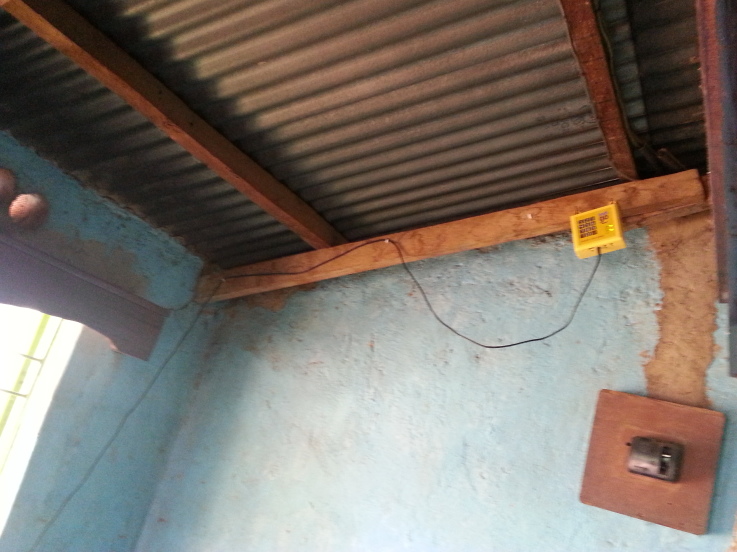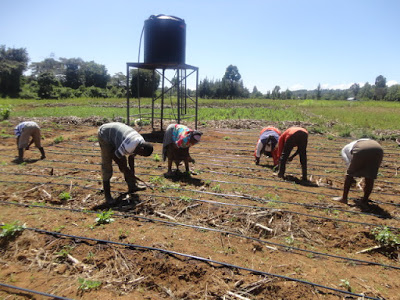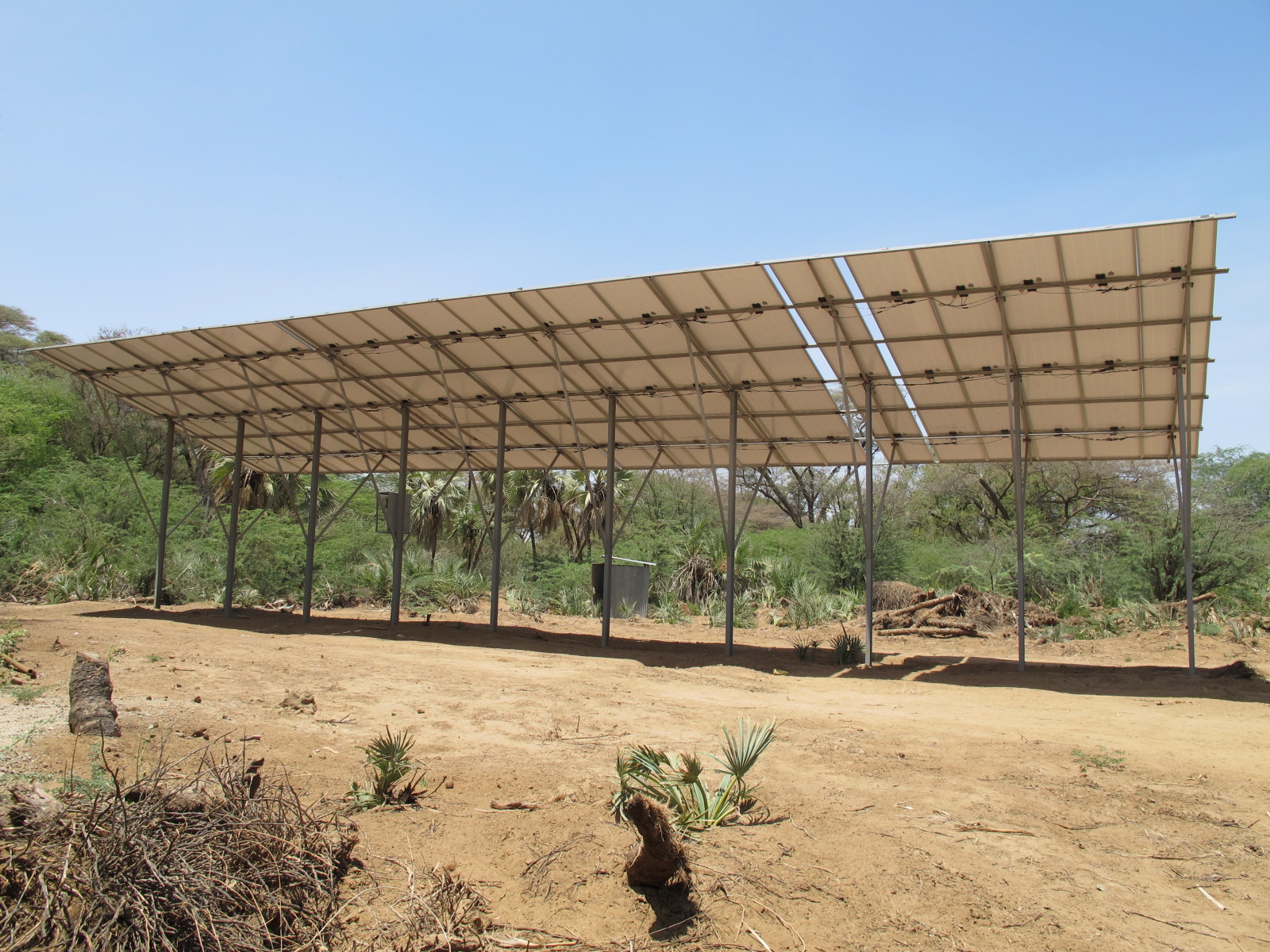By Mary Mwendwa

Joyce Wanjiku has for many years struggled to cope with costly paraffin for cooking. At this time, this was the sole available energy in her area.
“I have relied on paraffin that was not only expensive but also emitted smoke that posed healthy problems to my children. I would spend at least Ksh 100 to purchase paraffin on any given day. And, for a person with little income like me, it was a burden,” recounts Wanjiku, a resident of Nanyuki.
Like her, millions of families in rural areas across the country have no access to reliable and affordable energy source, and therefore coerced to opt for the costly cost energy sources like paraffin that cost a huge proportion of their meagre household income. To some, it has plunged families into poverty and more health hazards that come as a result of using such kind of energy.
This is not so today for Wanjiku and other residents of Kanyoni in Nanyuki County since the launch of solar energy project.
A happy Wanjiku whose life has transformed after using solar energy for lighting her household explains: We have many reasons to smile. Solar energy project has brought a sigh of relief to our energy woes.”

Wanjiku, in her early twenties is popularly known as Mama Charity, a name after one of her daughters. Kanyoni is located in Nanyuki, at the foot of Mt Kenya, over 200 Km, north of the Kenyan capital, Nairobi.
Kanyoni means “small bird” in Gikuyu language. The village derived the name from a Whiteman from Europe who was a wheat farmer known as Canyon. Due to local language interference, many community members could not pronounce the name Canyon; they decided to get an easier alternative – Kanyoni.
Like some of the 650 residents of Kanyoni, Wanjiku used to trek for long distances looking for clean and safe water, or alternatively draw it from the nearby River Nanyuki, which flows from Mt Kenya.
But today, they have piped water flowing from their taps. This water is pumped using solar energy which was installed by a local company. “We contributed money as a village and got this solar system installed for us.
Kanyoni is now blessed with two water kiosks which sell water to the residents at a very small fee. This water is pumped using solar energy
According to James Maina Macharia, one of the water committee members, residents are more empowered to demand for the rights and for accountability.
They have invested in solar energy which has really transformed their lives.
He shares: “We normally meet with the residents and talk about the problems they are facing- advantages and disadvantages of them accessing not only reliable but also cheap energy.”
He continued: “Most of the people here are now connected to solar energy which is lighting their houses as well as scaring away elephants that for a long time have been entering their farms at night and destroying their crops.”
He reiterated that human-wildlife conflicts have been on the rise before the arrival of solar energy. However, he says, since wild animals in Mt Kenya National Park where River Nanyuki flows from, farms, any source of lighting and for now solar scares these animals at night.
He says much as residents can get as much water as they want from River Nanyuki, it is better for residents to fetch the water from the plant.
Unlike before, “It is very safe today because there is no water borne diseases. It was caused by the dirty river, because they (residents) used to fetch and use the water direct. But today we have treated water.”














